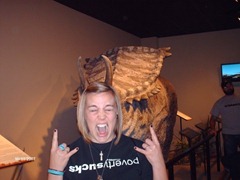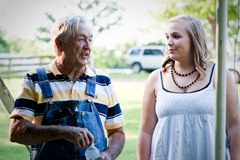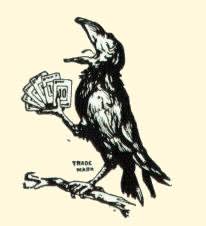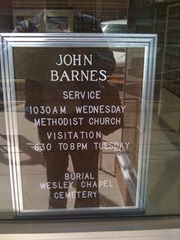Last week I took a look at Hippy, Left-Wing Jesus so I thought I should work towards the other extreme this week. You know, to keep things balanced. So may I present to you Sacrificial Lamb Jesus (a.k.a. “Scapegoat Jesus”, “Passion of the Christ” Jesus:
 Sacrificial Lamb Jesus came to die for your sins.
Sacrificial Lamb Jesus came to die for your sins.
And that’s all.
His whole purpose in becoming human was to come here and die in your place so that you can go to Heaven and be with God. He didn’t die until he was in his early 30s, and he came as a baby, but no one is really sure what he was doing the rest of the time. I heard he taught some stuff and did some miracles (which are NOT devil magic like Harry Potter), but that was all sort of like A1. Some people think it makes the steak taste better and some don’t, but either way, it’s not the main course.
No, the main course was his horrible, terrible death on the cross.
See, every time you talk about how SL Jesus died, you have to use as much gruesome detail as you possibly can. Your listeners need to know every painful, awful detail of crucifixion so that they understand exactly how awful, wicked and sinful they are. Because, after all, when you talk about SL Jesus, you have to make sure everyone knows that he died in their place. This was his only purpose. If they don’t understand this, then they miss Jesus entirely.
The problem with this view of Jesus is that it’s too narrow; it ignores too much of his story.*
Evangelicals are (in)famous for focusing on the Cross nearly to the exclusivity of anything else, and here we’ve made a misstep. At the Cross, Jesus defeated Death and Sin, but these were not ends to themselves. Jesus’ story starts before the beginning of time, according to John. And his mission was not to defeat Sin and Death, but rather to reconcile all things to himself – everything that had been lost in the Fall. Sin and Death were standing between Jesus and his goal, but they were not the end of his journey.
Jesus’ ultimate goal was to restore the world to its original purpose – to be the place where God lives with all creation (including us). Something in humanity is broken – that’s evident if you look at what we do to ourselves, each other and our world. When Jesus came, he came not only to heal us, but to show us what a fully human person looks like. That person is concerned with neighbors and creation. Not because it’s hip or trendy, but because Jesus is all about shalom, the whole world existing as it was created to be.
That’s why we have to pay as much attention to Hippy Jesus as we do to SL Jesus. We need them both. We need his life and his death.
What do you think would happen if we stopped looking at the wounds of the crucifixion only as our source of healing but also as Jesus’ means of identifying with the brokenness in our world? How might that change what we think it means to follow Jesus?
*If you just thought to yourself, “I like to be narrow. Jesus said the road to Heaven is narrow,” then please follow these instructions: Place your hand on the desk in front of you. Take a pencil in your other hand, and jam it as hard as you can into the desk-hand. Have you done that? Good. The pain you are now feeling is nothing in comparison to the pain SL Jesus felt on the cross for the sin you just committed of taking Scripture so grossly out of context. Lesson learned!





 I was reminded of the prayer rock last Monday when we found out that the (in)famous “Touchdown Jesus” in Monroe, OH had been struck by lightning and burned to the ground (check out the YouTube footage of the conflagration in progress).
I was reminded of the prayer rock last Monday when we found out that the (in)famous “Touchdown Jesus” in Monroe, OH had been struck by lightning and burned to the ground (check out the YouTube footage of the conflagration in progress).












 If you’re like me, the answer is: a long time ago. I use animal products – I eat meat, I wear leather, etc. And I’m not against killing animals as a rule.
If you’re like me, the answer is: a long time ago. I use animal products – I eat meat, I wear leather, etc. And I’m not against killing animals as a rule. PETA works very hard to change your mind. They work so hard because they’re passionate about their message. They’ll stop at nothing to save animals from unethical treatment.
PETA works very hard to change your mind. They work so hard because they’re passionate about their message. They’ll stop at nothing to save animals from unethical treatment. Listen to what
Listen to what 
 The short takeaway from this for me is: Until we as Christians develop a healthy picture of sexuality that is indebted more to thoughtful exegesis of Scripture than it is to traditional (read: Western, post-industrial revolution) gender roles and unreasonable, culturally-formed sexual expectations, we’ll never be able to do anything more than stomp our feet and throw a temper-tantrum when we discover cultural texts such as the PETA ads. To borrow a line from Andy Crouch, our posture will always be one of condemnation, never one of critique and certainly not one of creativity.
The short takeaway from this for me is: Until we as Christians develop a healthy picture of sexuality that is indebted more to thoughtful exegesis of Scripture than it is to traditional (read: Western, post-industrial revolution) gender roles and unreasonable, culturally-formed sexual expectations, we’ll never be able to do anything more than stomp our feet and throw a temper-tantrum when we discover cultural texts such as the PETA ads. To borrow a line from Andy Crouch, our posture will always be one of condemnation, never one of critique and certainly not one of creativity. And we desperately need creative and clever pictures of healthy sexuality in our culture right now. If this study has taught me nothing else, it’s how broken we all are, how fully our culture screws up our picture of what it means to be sexually healthy. I don’t have much of an idea of what this looks like yet, but it’s something I’m exploring pretty heavily for an upcoming series of posts.
And we desperately need creative and clever pictures of healthy sexuality in our culture right now. If this study has taught me nothing else, it’s how broken we all are, how fully our culture screws up our picture of what it means to be sexually healthy. I don’t have much of an idea of what this looks like yet, but it’s something I’m exploring pretty heavily for an upcoming series of posts.![Rubens_-_Adam_et_Eve[1] Rubens_-_Adam_et_Eve[1]](https://jrforasteros.com/wp-content/uploads/2010/03/Rubens__Adam_et_Eve11.jpg) This act of eating forbidden fruit has in recent years been seen as a ritual of empowerment within feminist theology. In this reinterpretation, the first woman is said to have been exercising power over her own life and challenging the existing order. Through ritual eating of an apple we follow the first woman in an act of subversion, encouraged to overthrow the oppressive patriarchal power that has dominated us (136).
This act of eating forbidden fruit has in recent years been seen as a ritual of empowerment within feminist theology. In this reinterpretation, the first woman is said to have been exercising power over her own life and challenging the existing order. Through ritual eating of an apple we follow the first woman in an act of subversion, encouraged to overthrow the oppressive patriarchal power that has dominated us (136). ![lisa_vegetarian[1] lisa_vegetarian[1]](https://jrforasteros.com/wp-content/uploads/2010/03/lisa_vegetarian11.jpg) So Ladies, are you unhappy with your life? Or perhaps more pointedly, given the ad’s choice of models, are you unhappy with your Self? Then it’s time to go, girl! Time to recreate yourself, to unleash the kind, clever, strong and beautiful woman trapped inside! Turn over a new leaf and stop eating meat! You’ll look and feel better than ever before.
So Ladies, are you unhappy with your life? Or perhaps more pointedly, given the ad’s choice of models, are you unhappy with your Self? Then it’s time to go, girl! Time to recreate yourself, to unleash the kind, clever, strong and beautiful woman trapped inside! Turn over a new leaf and stop eating meat! You’ll look and feel better than ever before.